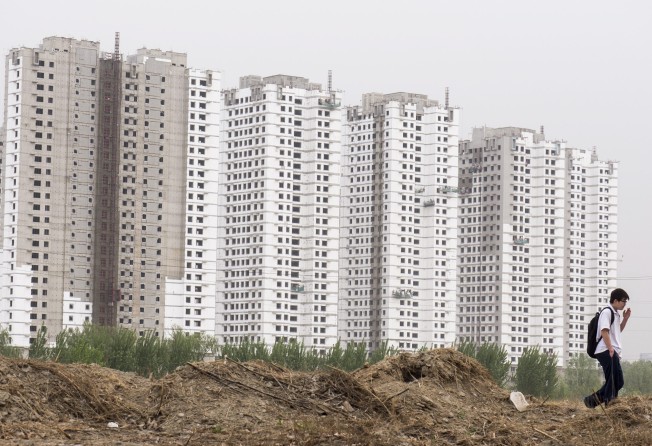China’s new mantra - eliminating the housing glut
Destocking the new buzz word for Chinese leaders

Location, location, location. It is the mantra everyone knows in property investment.
Destocking, destocking, destocking. The top leaders in China have repeated it more than three times in the past month.
The message has got across: Selling down property inventories is one of the top priorities for policymakers next year.
And UBS chief China economist Wang Tao explains why: “Only once property volume construction activity stops sliding and more progress has been made in closing down excess capacity and non-viable enterprises will China’s economy be able to stabilise on a more sustainable basis.”
But the government is yet to fully map out how it is going to help developers sell down a record pile of 697 million square metres of unsold properties as of the end of November. That amount is more than the country’s full-year property sales back in 2006, when the economy grew 12.7 per cent. Now the world’s second-largest economy is struggling to hit annual growth of 7 per cent.
“We must destock property inventories, by turning migrant workers into urban citizens in a faster pace and pressing ahead housing reform to meet demand from these new urban residents,” the ruling Communist Party’s Politiburo meeting chaired by President Xi Jinping concluded last week.
There are also proposals from leading government think tanks that China should give tax credits to mortgage borrowers so as to improve housing affordability and stimulate demand, although implementation will not be imminent as it is part of the country’s long-awaited personal income tax reform.
Such top-level messages are feeding expectations of further property sales recovery in 2016 and driving up share prices of listed developers, including China Vanke, the country’s biggest home builder in revenues.
But not everyone is convinced.
“Based on recent meetings, most investors are not fully comfortable with the bullish view on China property that is related to policy stimulus,” said Venant Chiang, an analyst at Jefferies. “Risk factors such as RMB volatility and money repatriation emerge to concern investors again.”
Jiang Yunfeng from the mainland property consultancy China Real Estate Index System in Beijing said such suspicion is partly because of a lack of trust in the government’s new strategies to boost the slowing property sector, different from the past heavy-handed measures like those used in the wake of the global financial crisis.
Back then, China’s former premier Wen Jiabao declared “confidence is more important than gold” and rolled out a 4 trillion yuan stimulus package. The country’s property market roared again in the summer of 2009 after a brief correction, and thus brought the economy back above 10 per cent annual growth in the third quarter of that year.
“Policies and their effects were easy to predict at that time. Now it’s difficult,” Jiang said.
The new government under President Xi Jinping and Premier Li Keqiang declared soon after taking office that they would let market play a bigger role and reduce government intervention.
They have yet to build a solid track record to show what exactly that means, while the impact of new measures they issue are diminishing, as the economy has kept slowing and confidence is fragile, some analysts said.
Then, the question is: Will the new government eventually give up the bottom line and resort to old-fashioned measures, such as buying a flat and getting an urban resident hukou for migrant workers?